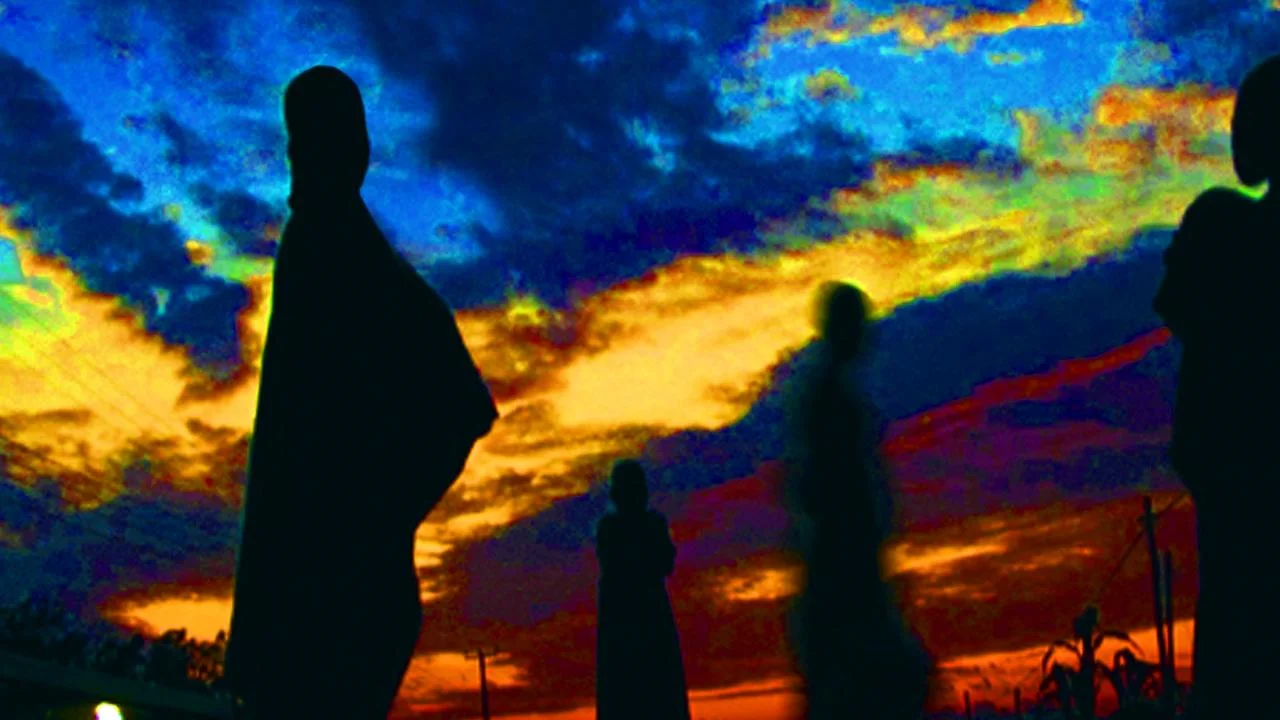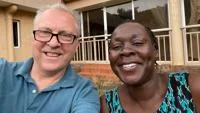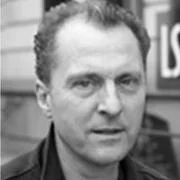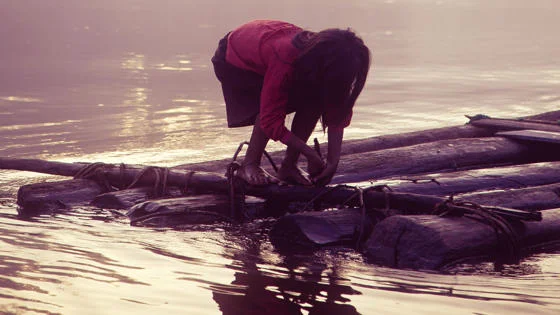Pursuing transitional justice in Uganda: the trial of Dominic Ongwen

Contents
Appearing before the International Criminal Court (ICC) in February 2021, former militia leader and ex-child soldier Dominic Ongwen was found guilty of war crimes and crimes against humanity.
The trial was unique in its moral complexity - this was the first time an ICC inductee had been convicted of crimes which were also perpetrated against them. Ongwen is also the first person prosecuted and convicted by an international court or tribunal for sexual and gender-based crimes.
In many ways, people were being forced into a rhetoric of forgiveness. But truly, they wanted accountability.
One of five commanders indicted by the ICC in 2005, Ongwen was a senior leader of the Lord’s Resistance Army (LRA) – a rebel extremist group responsible for the deaths of over 100,000 people across east and central Africa. Atrocities committed by the LRA include massacres, sexual slavery, mutilations and mass civilian abduction, including many children, for use as child soldiers. With claims of religious inspiration and in pursuit of deposing the Ugandan government, the notorious group have brutalised communities in the region for over 30 years.
Upon Ongwen’s surrender to the ICC in 2015, an opportunity for justice and accountability emerged.
Countering distrust of the International Criminal Court (ICC)
The substantive work of Tim Allen, Professor of Development Anthropology at LSE, and his colleagues, ultimately aided in the successful prosecution of Ongwen.
Professor Allen’s extensive research and fieldwork in the region, spanning decades, underpinned his contributions to the ICC. In his expert testimony and guidance, he was able to detail the background to the war, the politics and history of Uganda, the Acholi-specific cultural context, the human rights abuses of the LRA, and the brutal anti-insurgency operations of the government.
When the LRA situation was referred to the ICC at the end of 2003, however, he was concerned with the antipathy of international aid agencies and activists towards the process. The prevailing analysis of the time was highly critical of the court’s intervention. Many believed it to be imperialist and counter-productive to reconciliation efforts. In turn, traditional mechanisms of justice were favoured by critics in approaching conflict mediation and accountability.
"I was sceptical about what seemed, to me, to be a kind of hostility towards the International Criminal Court," he says. "Critics were very concerned about those people who had been abducted, but they were also very invested in emphasising traditional rituals of healing.
"From the years I've lived in those regions, I was very aware of those rituals, but I believed they were inappropriate for dealing with the scale of what was happening. In addition, I was concerned that using them as an alternative means of promoting accountability suggested a kind of ethno-justice. The implication was that the Acholi had their own ways of dealing with their own violence. That struck me as a very misconceived and troubling perception."
Many spoke about forgiveness, but also felt deeply blighted by what had happened to them, as well as frustrated by the lack of post-conflict accountability.
Obtaining justice through the ICC
Professor Allen’s views on the matter are grounded in findings from local-level research in northern Uganda dating back to the 1980s. During the war, he worked with Jackline Atingo and other colleagues in the Internal Displacement Persons (IDP) camps, tracing those people who had been forcibly recruited. Jackline Atingo was abducted from her secondary school by the Lord’s Resistance Army (LRA) but had been rescued by her teacher before enduring the fate of many of her peers. Her work with Professor Allen is motivated by a humanitarian imperative.
"It was very difficult and scary in the IDP camps. My parents were very worried, especially after what had happened to me as a child. But I insisted that this was going to take me somewhere, and that I felt I must do it," she says.

null
Tim Allen and Jackline Atingo in Uganda
Together, they found that those most affected by the LRA did not necessarily reject the notion of international justice. Although there were concerns that the activities of the ICC might exacerbate the conflict, many people interviewed were eager for the LRA’s leader, Joseph Kony, and other senior commanders to be arrested and prosecuted for their atrocities.
Most were torn between the rhetoric of amnesty and forgiveness espoused by aid agencies and various activists, and the intricacies of how international law could otherwise serve them.
Accountability and the "rhetoric of forgiveness"
On the outcome of their research, Jackline says: "It gave people the opportunity to reflect and explore their feelings around what happens next. Many spoke about forgiveness, but also felt deeply blighted by what had happened to them, as well as frustrated by the lack of post-conflict accountability."
Professor Allen recounts a poignant encounter: "One evening in an IDP camp, I sat with a woman. She was surrounded by these graves in her compound. I asked, ‘who are all these people buried here?’ She said, ‘those are my children, they were all killed in the LRA attack’. I asked, ‘and what do you think about that?’ She gave the answer that the Christian churches and the aid agencies were promoting, which is that we have to offer forgiveness to people, and so on.
"After a while it got dark and I said, ‘if somebody had killed my children, I don't think I would feel that way’. She didn't say anything. But after a while, I realised that she was crying in the corner. She then said to me, ‘we can't look at people with dark eyes now. But we know who they are’. In many ways, people were being forced into a rhetoric of forgiveness. But truly, they wanted accountability, just like anyone else."
"Do you think justice comes from the briefcase of the white man?"
Throughout his research, Professor Allen engaged with viewpoints critical of international intervention. "At one point, an Acholi human rights activist, who thought I was somehow working for the ICC, slammed his briefcase on the table," recounts Professor Allen. "He said to me, ‘do you think justice comes from the briefcase of the white man?’ It was a very lively discussion, a very passionate discussion.
"There are different views about a middle-aged white professor becoming involved in trials in an African context," he continues. "I was aware that there was a danger of representing perhaps a particular view, involving intimacies of people's lives, that could be seen as having a neo-colonial dynamic.
"One of the concerns I had about becoming involved in this work was ‘Why am I the one being asked to do this?’ And one of the most rewarding things for me is that, while I have had vigorous debates, I have not encountered any personal animosity from people in Uganda. This lack of antipathy to my involvement I suppose reflects a certain kind of credibility within the region. I am sometimes teased about it. Most of the comments I have had about being filmed as a witness have related to the fact no one had seen me in a tie and suit before."
If he was going to be prosecuted for anything, I felt he ought to be prosecuted for sexual crimes.
Providing the ICC with information on cultural understandings of sexual wrongdoing
The case against Ongwen largely centred around sexual and gender-based crimes. Crucially, Professor Allen, researcher Dr Holly Porter and colleagues provided detailed information about notions of consent, marriage, and sexual norms in the Acholi context. Their comprehensive analysis ultimately informed litigation decisions by the prosecutor, resulting in the dramatic expansion of charges against Ongwen from seven to 70.
"If he was going to be prosecuted for anything, I felt he ought to be prosecuted for sexual crimes," says Professor Allen.
As part of this work, through organic networks established during their fieldwork, it was possible to help locate and identify seven women who went on to provide evidence and testimony. Importantly, it was possible to ensure anonymity for the women and pre-trial questioning in Uganda – meaning that they did not have to appear in The Hague. These safeguarding efforts prioritised and protected the welfare of those victimised by Ongwen.
Ultimately, the ruling set a judicial precedent for the prosecution of sexual and gender-based crimes, in international criminal law.
Professor Allen is now advising the Attorney General in Uganda, on what to do with the compensation funding that is now potentially available for the victims of the war. His goal is to use records gathered from his research over the years, to ensure the provision of restitution is fair and reaches those who need it the most. Jackline plans to enrol on a PhD programme, and to continue her work with the survivors of Ongwen, and other LRA commanders. They watched the ICC judgement live together, noting that the responses among those victimised by Ongwen were varied, once more, reflecting the complexities of the case.
Both Jackline Atingo and Professor Allen place survivors – their daily lives, and their futures – at the centre of their work.
"This work has allowed me to build a strong rapport with the women," concludes Jackline. "If I call them, they're very willing to come to me because when they have problems, I also stand in for them. If they're sick, in the hospital, with police, I am there to provide moral support, presence, and advocacy. Always."
This landmark judgement in a historically significant case was the conclusion of an epic and deeply complex journey towards post-conflict social repair and justice in Uganda, with broader implications for future pursuits of justice globally.
Hear Professor Tim Allen and Jackline Atingo speak about their work on the Public Authority Podcast, created by LSE’s Centre for Public Authority and International Development at the Firoz Lalji Institute for Africa.
Professor Allen and Jackline Atingo were speaking to Sophie Charlotte, Media Relations Officer at LSE.
Download a PDF version of this article





